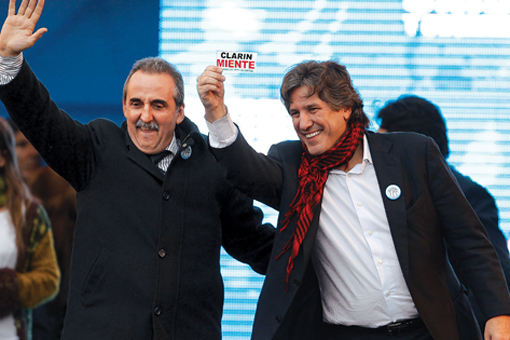For the past five years, Argentina’s current government and the Clarín Group, the country’s principal media conglomerate, have been on a collision course.
President Cristina Fernández de Kirchner has denounced the group on national TV for having once been “partners” with the military dictatorship and accused its executives of plotting against her. Meanwhile, Clarín, the country’s most widely read newspaper (and the group’s most important media property) has returned the favor with front-page denunciations of the government and scathing editorials, including one calling an initiative to limit the number of broadcast licenses held by a single company a “gag order.”
The tensions between Fernández de Kirchner, now in the middle of her second presidential term, and Argentina’s most powerful media group represent more than a personal quarrel. Triggered by a political falling out between the media giant and the administration, and exacerbated by a 2009 government media reform law, they underline the escalating struggle across the region to develop channels for diverse political views and free expression in an environment dominated by giant media monopolies…





